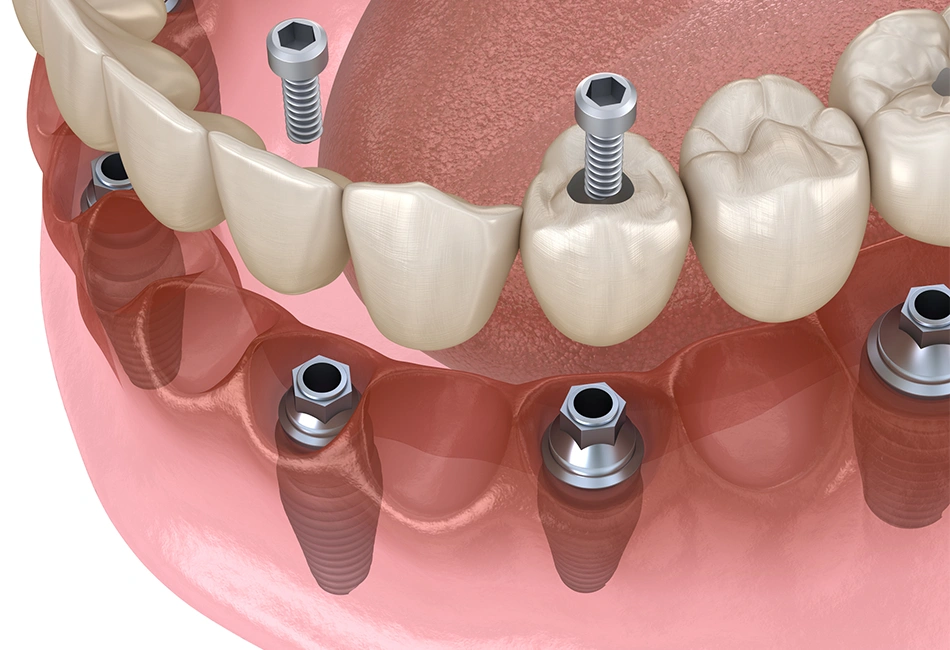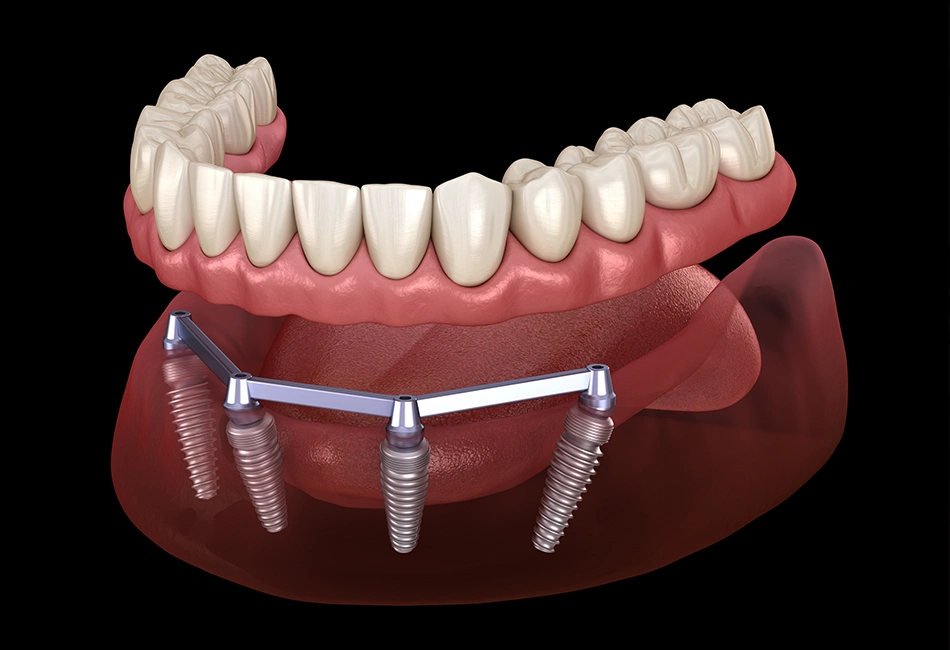In the journey towards achieving a perfect smile, dental implants stand out as one of the most effective and long-lasting solutions to replace missing or damaged teeth. However, a common apprehension that most patients have is: do dental implants hurt? It's a valid concern, as any dental procedure comes with a degree of uncertainty regarding discomfort.
At Dental Arts of Florida, we believe in informed decisions. This article aims to demystify the process of dental implants and shed light on the pain factor associated with the procedure.

A dental implant is essentially a titanium post that is surgically positioned into the jawbone beneath the gum line. This allows your dentist to mount replacement teeth or a bridge into that area. As the implant fuses with your jawbone, it provides stable support for artificial teeth, ensuring that dentures and bridges don’t slip or shift in your mouth.
The process begins with a thorough consultation where the dentist assesses the health of your gums and bones. This step is crucial in determining if you’re a good candidate for dental implants.
The implant is then surgically placed into the jawbone.
After the surgery, a critical phase called osseointegration commences. This is where the implant fuses with the jawbone, a process that can take several months.
Once osseointegration is complete, an abutment is attached to the implant post.
Finally, a crown, custom-made to match your natural teeth, is attached to the abutment.
Now, to the heart of the matter! The actual sensation during the implant procedure.
Dental implant procedures are performed under local anesthesia, meaning the specific area being worked on is numbed. This ensures that you do not feel pain during the surgery.
Like any other surgical procedure, you might experience some discomfort after the anesthesia wears off. This could be in the form of swelling of your gums and face, minor pain at the implant site, and some bruising of your skin and gums. However, this discomfort is usually manageable with over-the-counter pain medications and should subside within a few days.
During the osseointegration phase, you should not experience pain as it's a gradual process of the implant fusing with your bone. If, however, you experience prolonged pain or discomfort during this phase, it's essential to consult your dentist as it might be a sign of complications.
It’s worth noting that pain is subjective. Several factors can influence your perception of pain, including:
Everyone has a unique threshold for pain. What might be mildly uncomfortable for one person could be quite painful for another.
If you require additional procedures like bone grafting, the recovery might be a tad more uncomfortable.
Healthier individuals tend to recover faster and experience less postoperative discomfort.

In summary, while the idea of getting a dental implant may seem daunting, the actual procedure is designed to be as comfortable as possible. With advancements in dental technology and anesthesia, the pain associated with dental implants has significantly reduced over the years.
At Dental Arts of Florida, our primary concern is your comfort and well-being. Our team of professionals is trained to ensure the procedure is smooth, with minimal discomfort. If you have any apprehensions or questions about dental implants or any other dental procedure, we are here to guide you every step of the way.
Ready to take the next step towards a complete, radiant smile? Contact Dental Arts of Florida today to schedule a consultation and discover if dental implants are right for you!
Dental implants offer a permanent solution to tooth loss. They provide stability, prevent jawbone loss, and function just like natural teeth, ensuring that dentures and bridges don’t slip or shift while speaking or eating.
While mild discomfort and swelling can subside within a few days after the surgery, the osseointegration phase, where the implant fuses with the jawbone, can take several months. However, during this phase, patients typically don't experience pain.
As with any surgical procedure, there are some risks, including infection at the implant site, injury to surrounding structures, nerve damage, and sinus problems. However, these complications are rare, especially when the procedure is performed by experienced professionals.
Most people who are in good general health and have healthy gums are suitable candidates for dental implants. However, a thorough evaluation is necessary. Individuals suffering from chronic diseases or conditions that interfere with wound healing might need to undergo additional evaluations.
While dental implants function like natural teeth, it's crucial to maintain good oral hygiene. This includes brushing, flossing, and regular dental check-ups. Your dentist will provide specific care instructions after the procedure.
With proper care and maintenance, dental implants can last a lifetime. The crown, however, typically lasts 10 to 15 years before it might need replacement due to wear and tear. Regular dental check-ups ensure that your implant is in good condition and any issues are addressed promptly.

